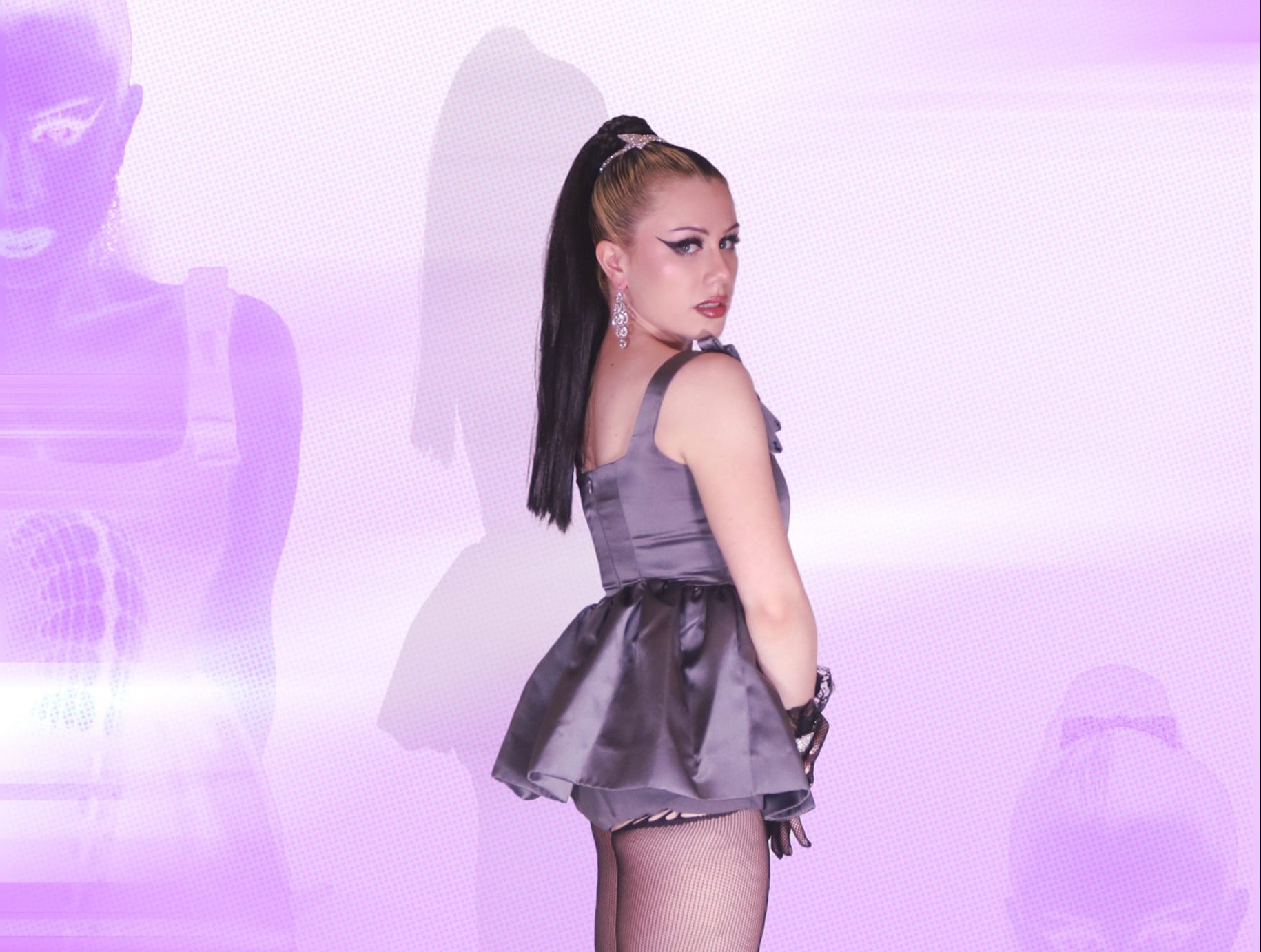Landing this Friday, the artist enters a new chapter with the release of Troubled Paradise, albeit one that’s considerably darker than anywhere she’s ventured before.
“I feel like I had more emotions to get out,” she adds, “rather than like, those sexual feelings. I was more sad over the past two years than feeling myself. So that came out in the music.” The result is a full-length that flirts with the sunless side of pop, by way of an influence from “the alternative pop girls of the early 2000s” (read: Avril Lavigne and Gwen Stefani) and pop punk. Ricocheting off the themes of self-sabotage and heartbreak, this certainly wasn’t the album that fans expected her to piece together given the upbeat trend set by her previous self-titled mixtape.
“For two and a half years,” she explains, “I was single, not seeing anyone seriously. I would have flings here and there and they would really wear down on me emotionally, because I feel like I was giving a lot of myself to people who weren’t really reciprocating those feelings.” She refers to opening track ‘Self Destruct’ as a literal reflection of what she was doing: “I had a lot of self-destructive habits, which is where that song title came from. I was drinking, living at home in St. Louis and not taking care of myself, super depressed, getting played by people that I was in love with or had a crush on or whatever, and it was really heartbreaking, and it was really hard.”
For an artist who holds the mission of empowering others close to her heart, it’s hard to fathom that Slayyyter has the same struggles as the rest of us, especially with the emphasis that the releases preceding Troubled Paradise had on confidence. While she emerged from those struggles eventually, making time for herself again and refusing to rely on others to make her happy, she also drew strength from the musicians that she looked up to during that time. Paying it forward, she continues to proffer the duality of her music as both a demonstration of vulnerability on some cuts and on others, a soundtrack to turn up to when you need it.

“I feel like my audience is so open to sexually-empowering female figures,” she states. “I really get to be as confident as possible and to be myself and to push the boundaries – to be vulgar, to be crazy – because I feel like they’re so open to receiving it and they love it. It makes them feel confident to listen to those lyrics and to listen to that music. People DM me and they’re like, ‘I know it sounds silly, but your music really saves me because it makes me feel so confident.’”
There is an outlier on Troubled Paradise that drifts away into completely uncharted territory for the Slayyyter project, and that is ‘Serial Killer’, which falls into the latter half of the record. Slayyyter admits that it was written “the longest time ago” and that it is “definitely different from everything else on the album,” but it does mark a standout moment, in addition to hinting at the potential direction her songwriting might take in the future.
“I think I had just watched the movie Gone Girl and thought it would be cool to write a song from the perspective of a woman finding out her husband is cheating on her,” she explains. “But relate it to finding out your husband’s a serial killer, you find little clues in your house, blood on a shirt or whatever, and I had this music video in my head for it where it actually ends up being the woman that’s the serial killer and she’s setting her husband up…I always thought the songwriting was clever, so I was like, I definitely will put this on my debut album. Bring it back, finish it for real.”
That didn’t end up being the only film reference on the project, with its art a definitive nod to The Wizard of Oz. It’s an apt metaphor, with Slayyyter’s journey to getting here representing a tumultuous adventure, and it even has a happy ending – she’s about to release one hell of an album, which no doubt will be met with critical acclaim. On top of that, she’s happy, ruby slippers and all.
“Moving out to LA, being swept up all of a sudden out of nowhere and having this dream job of making music, I feel like Dorothy. The tornado took me from Missouri, my humble hometown beginnings, and it swept me into this crazy place.” She concludes: “The symbolism of finding somewhere over the rainbow and finding your heaven, finding your happy place, finding what makes you feel good about yourself at the end of the day? That’s what this album is about.”



